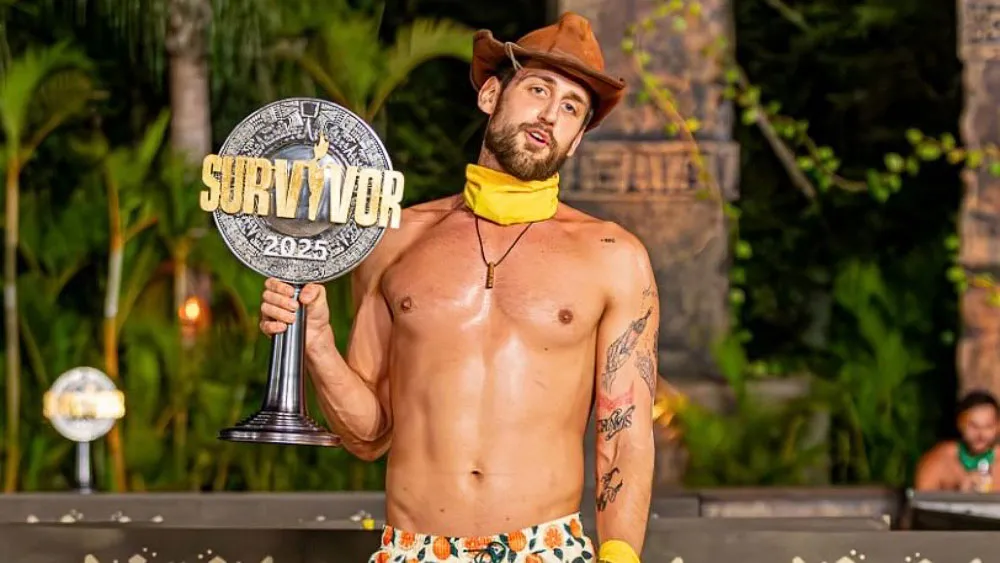March 31, 2015
Lambda Winner Sassafras Lowery Releases 'Lost Boi'
Winnie McCroy READ TIME: 4 MIN.
In "Lost Boi," Sassafras Lowery's queer punk reimagining of the classic Peter Pan story, prepare to be swept overboard into a world of orphaned, abandoned and runaway bois who have sworn allegiance and service to Pan, the fearless leader of the Lost Bois brigade and the newly corrupted Mommy Wendi who, along with the tomboy John Michael, Pan convinces to join him at Neverland.
"One of the things I really love is fairy tales and classic stories, and one of the most powerful and culturally recognizable is Peter Pan," said Lowery, the 2013 Lambda Literary Berzon Emerging Writer Award Winner. "There are so many culture reference points that exist in society as a whole that the queer community lent itself naturally to the idea of being weird and really exciting."
Told from the point of view of Tootles, Pan's best boi, the lost bois call the Neverland squat home, creating their own idea of family united in their allegiance to Pan, the boi who cannot be broken, and their refusal to join ranks with Hook and the gentrifying pirates. Like a fever-pitched dream, "Lost Boi" situates a children's fantasy within a subversive alternative reality, chronicling the lost bois' search for belonging, purpose, and their struggle against the biggest battle of all: growing up.
"'Lost Boi' is a queer and punk retelling of JM Barrie's 'Peter Pan,' and while it stays faithful to the plot arc of Barrie's work, it has been queered and shifted," said Lowery. "The narrator is Tootles, one of the lost bois, and it's really told from his perspective as he grapples with life in Neverland. He interfaces with Wendi and Pan, pirates and mermaids, but what he's really grappling with is what it means to grow up, and the pressures that go along with that."
Everything about the story has been brought into a contemporary queer culture. The story is now set in an urban environment: Neverland is a squatters' warehouse, there are BDSM leather scenes in the story and relationship dynamics, mermaids are the femme community, and everything is given a contemporary queer aesthetic.
Many of the characters are trans or genderqueer identified, as Lowery admitted, "One of the things that's really important to me as an author is to create books and fictionalized worlds that reflect the queer culture I live in and know. For me that means trans and gender variant and genderqueer characters. There are lots of different pronouns in this book, but gender transition is not the theme. It's not about transitioning -- that's a given. This is about the world they live in."
Although many people consider "Peter Pan" to be a children's story, Lowery aptly notes that Barrie's text, when closely read, reveals itself to be better suited to this type of redux than one might think.
"The darkness of JM Barrie's 'Peter Pan' is what really drew me to the story. I've always loved Peter Pan as a cultural icon, but when I started doing original research for the book, I didn't love the Disney version, but the original. It's dark and scary and not appropriate for children in so many ways," said Lowery. "When writing 'Lost Boi,' it was very similar. It's not a book for kids; it grapples with complicated dark themes of homelessness, poverty and substance abuse -- really rough themes that a lot of people are going through as they're figuring out what they want their life to look like. Happy endings are not as clear-cut as we think."
Lowery will hold the book release party for "Lost Boi" on April 17 at 7 p.m. at Bluestockings Bookstore in New York City. She will launch her West Coast tour on May 4 with a reading on May 4 at San Francisco's Booksmith Store and on May 5 at Radar. On May 6, she will appear at Book Warehouse on Main Street in Vancouver, BC. See her in Seattle on May 8 at Elliot Bay Bookstore, and May 11 in Portland's Powell's Bookstore.
"Lost Boi" will be released via Arsenal Pulp Press in April. For more information, visit www.SassafrasLowrey.com
Winnie McCroy is the Women on the EDGE Editor, HIV/Health Editor, and Assistant Entertainment Editor for EDGE Media Network, handling all women's news, HIV health stories and theater reviews throughout the U.S. She has contributed to other publications, including The Village Voice, Gay City News, Chelsea Now and The Advocate, and lives in Brooklyn, New York.


